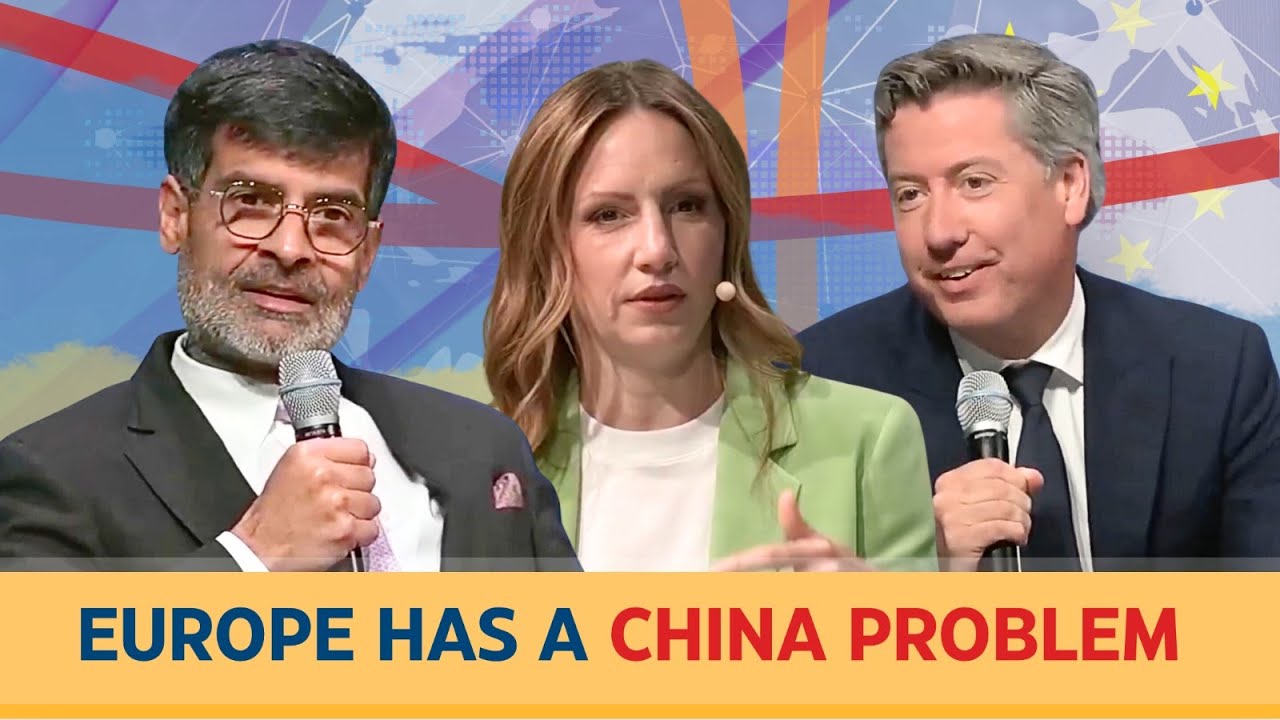Should The Internet Be Censored? | Ella Whelan, Yasmin Alibhai-Brown, Nigel Inkster
Summary
TLDRIn this thought-provoking discussion, panelists debate the impact of internet anonymity on human behavior. They explore whether people inherently need oversight to act ethically, drawing parallels to Hobbes' view of human nature. The conversation delves into how the internet's global reach dilutes social control and common goals, potentially fostering online abuse. The panel also addresses the balance between freedom of speech and the need for regulation, cautioning against knee-jerk reactions that could erode democratic values.
Takeaways
- 🌐 The Internet's anonymity has led to an increase in abuse, suggesting a need for oversight to ensure good behavior.
- 🧭 The concept of human nature being inherently wicked or good was discussed, with the idea that culture and environment play significant roles in shaping behavior.
- 🌍 The global nature of the Internet has disconnected people from local social controls, potentially leading to increased online abuse.
- 🌱 The idea that a strong internal moral compass can replace the need for external oversight was presented.
- 📈 The Internet has been a test for societal tolerance and the ability to handle freedom of speech over the last 30 years.
- 🚫 There is a concern about the overreaction to Internet abuse leading to increased censorship and loss of freedom.
- 🔑 Social media platforms' business models encourage outrage and fit, which can perpetuate negative behavior online.
- 🌟 The debate highlighted the importance of not letting authoritarian regimes dictate democratic values and freedoms.
- 📝 The necessity for sensible regulation in contrast to censorship was emphasized, drawing a comparison to the print sector's standards.
- 🔄 The discussion underscored the ongoing debate about balancing freedom of speech with the need to prevent harm and abuse online.
Q & A
What is the central debate in the discussion?
-The central debate revolves around whether human beings require oversight to behave ethically online, and whether the anonymity of the internet has led to increased abuse and negative behavior.
What does Janos suggest about human nature and the internet?
-Janos suggests that human beings are neither inherently good nor bad, but act based on survival and cultural influences. The internet has expanded our social group globally, which can lead to a lack of common purpose and increased online abuse due to the absence of immediate social feedback.
What does Ella Whelan believe the internet has revealed about society?
-Ella Whelan believes the internet has revealed a darker side of human nature, but also a tendency to react with censorship and control in response to internet abuse, which she sees as a threat to freedom of speech.
How does Nigel Inkster view the role of social media in promoting negative behavior?
-Nigel Inkster sees social media platforms as promoting negative behavior like outrage and fear due to their business model, which relies on keeping users online to collect data for targeted advertising.
What does Yasmin alibi Brown argue about the need for regulation on the internet?
-Yasmin alibi Brown argues that censorship should not be confused with sensible regulation. She differentiates between the freedom of speech and the need for responsible publishing practices on the internet.
What is the main concern Nigel Inkster raises about authoritarian regimes?
-Nigel Inkster is concerned that authoritarian regimes would like to see democracies clamp down on freedom of speech, and he warns against implementing wide-scale controls that would justify their own actions.
What is the role of social control in smaller communities according to the discussion?
-In smaller communities, there is a certain amount of social control and common purpose which helps regulate behavior. However, this is lost in larger, more diverse communities and especially on the internet.
How does the internet's global reach affect human behavior according to Janos?
-Janos suggests that the internet's global reach multiplies the diversity of people we interact with, making it easier to act in ways that may be detrimental to others without immediate social consequences.
What does Ella Whelan think about the reaction to internet abuse?
-Ella Whelan is critical of the knee-jerk reaction to censor and control the internet in response to abuse, arguing that it reveals a lack of tolerance and an overreaction that threatens freedom.
What is the importance of having a 'human compass' according to the discussion?
-Having a 'human compass' refers to an internal sense of right and wrong that can guide behavior even in the absence of external oversight. It is seen as crucial for ethical behavior online.
What is the potential danger of giving up freedom to speak and think freely according to Ella Whelan?
-Ella Whelan warns that giving up freedom to speak and think freely to governments and social media giants could lead to a limitation of the content we access and a reduction in our tolerance for diverse opinions.
Outlines

This section is available to paid users only. Please upgrade to access this part.
Upgrade NowMindmap

This section is available to paid users only. Please upgrade to access this part.
Upgrade NowKeywords

This section is available to paid users only. Please upgrade to access this part.
Upgrade NowHighlights

This section is available to paid users only. Please upgrade to access this part.
Upgrade NowTranscripts

This section is available to paid users only. Please upgrade to access this part.
Upgrade NowBrowse More Related Video

Georgia L. Anderson, Rory Sutherland, Stephan Pretorius and Antonis Kocheilas – AI | Nudgestock 2024

Mengukur Moral Bangsa, Kita Krisis? #VISINEGARAWAN

Top 3 Altcoins for 2025 Bull Run (Expert Picks)

L'IA Pense-t-elle Vraiment ?! Le Grand Débat !

The India Alternative | Can Germany and Europe Embrace It

Joe Rogan | Crazy Facts About Multiple Personality Disorder w/Christopher Ryan
5.0 / 5 (0 votes)